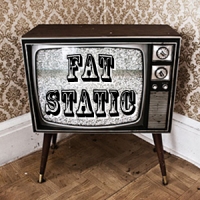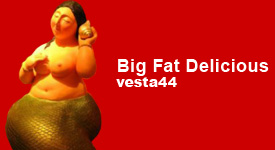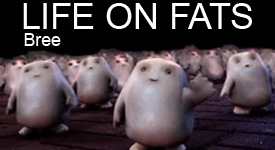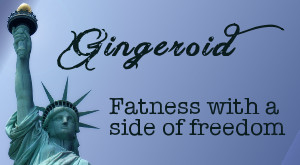OMG It’s satire! Don’t you get it?
It’s a rare social justice advocate who doesn’t call out prejudice only to hear the refrain, “But it’s satire! Don’t you get it?” Of course, the person was not really engaging in satire. She didn’t like being called out on this bias and now, she’s trying to backpedal and come up with an excuse to let her obvious prejudice hang out and not get criticized for it. Social justice advocates can see this, but others will fall for it and the person that’s doing the calling out gets accused of being too sensitive, not being sophisticated enough to get it, etc.
The problem is that it’s just not true, and we need to make sure people know that. So, this is my first step in the process of calling this tactic out for the derailment that is it.
Let’s start with the obvious. What is satire?
Satire, as defined at Dictionary.com, is a written form that holds up examples of human vice or folly for ridicule, often with the use of irony, sarcasm, and metaphor (not the exact definition, but the gist of it). Simply posting offensive or disagreeable sentiments is not a form of satire. I love it when people claim satire when no obvious attempt at humor was made. Saying “Most feminists I know are man-hating bitches that lie about being abused to get free goodies” is not satire. There is no humor, no subtext, etc. to MAKE it a satire. It is, plain and simple, an angry and bigoted sentiment.
Saying offensive things in a sarcastic, ironic, or otherwise supposed-to-be-funny way is not satire either. Even when humor is attempted, satire STILL needs to have a story and a subtext to be a satire. Making a comment along the lines of “Why don’t you pick another doughnut, fat ass!” might be someone’s sad attempt at humor and sarcasm, but without a story or subtext, it’s still not satire.
Now let’s say someone succeeds at turning bigotry into a respectable attempt at satire. It’s still bigotry. The point of satire is to hold up follies and vices expressly to ridicule them. Using satire to expose bigotry is a noble pursuit. However, if you are holding said bigotry up for PRAISE, then it’s not satire. It’s a genuine sentiment on your part and should be treated as such. If you are indeed using satire, but to criticize those who seek to eliminate bigotry and sympathize with those who promote it, then it’s satire alright. The problem is that it’s satire in service of the WRONG side of the issue. Either way, it’s not acceptable in a social justice space.
Here are some other things I want to point out about satire, namely what makes satire effective and what makes satire sink faster than the Titanic:
- Satire has to be true.
- Satire has to be relevant.
I watch King of the Hill every now and again. I understand that King of the Hill is meant to appeal to more conservative sensibilities in what it portrays and the messages that it sends and, as such, it’s not at the top of most activists’ lists to watch. Regardless of your cultural or political orientation, though, no show is above criticism for being just plain wrong.
A few months ago, I was watching an episode of KotH in which Hank hires a drug addict who is incompetent at his job because of his addiction. When Hank tries to fire him, disability activists come in, make a scene, and tell Hank that the Americans with Disabilities Act (ADA) prohibits Hank from terminating this person because of behavior related to his impairment. Eventually, the other employees become resentful and try to claim that their anger at their unfair treatment is “handicapping” them to the point where they cannot work. Therefore, the ADA entitles them to not work and still get paid. The message being sent is that the ADA and other disability rights provisions are widely abused, that disability activists are out of touch, and that we as a society need to toughen up.
Yes, satire is built largely upon metaphor and exaggeration to illustrate the point more effectively. Many satirists use elements of sci-fi, fantasy, or other elements of un-realism to create the universe in which the satire takes place. That said, the core message still has to be true. What’s being satirized has to be a real problem that exists in our world. The ADA has NEVER considered illegal drug use as a protected condition under its rules. Businesses have NEVER been required to hire or retain a person whose disability legitimately kept them from performing their job, even with reasonable accommodation. If an otherwise capable person, with no work-related behavioral problems, requests to leave early once a week for substance abuse treatment, that is a reasonable accommodation of a medical condition that is covered under the ADA. On the other hand, if a person with uncontrolled diabetes is constantly away from her desk because of trips to the restroom, an employer is not required to keep that person. If a person uses drugs in the workplace, or is prevented from doing her job because of drug use outside the workplace, that person does not have to be retained. These are common misconceptions about how the ADA works. KotH reinforced these misconceptions and, instead of being funny or incisive, it just sounds stupid and petty. It sounds like they resent people with disabilities for being visible and for their loss of able-bodied privilege. The worst part is that this could very easily have been avoided had the producers and screenwriters done ten seconds of research on what the ADA actually covers.
Sure, I could make a satire that doesn’t in any way reflect reality. There is no law against it. If I wanted to, I could satirize the tendency of modern-day members of the Populist Party to use pink unicorn statues when praying to Obama. Except that there are no modern-day members of the Populist Party, and no one uses pink unicorn statues to worship anything, including Obama. I’m sure my audience would be laughing, but not at my brilliant commentary. They would be laughing at me for being stupid enough to publish it and then, more than likely, they would have me committed.
What if a satire is technically true, but dated or overused? That’s another key element of effective satire. It needs to be *fresh.* It needs to be *relevant.* I am no fan of Family Guy, but I went through a phase where I watched a few episodes (at the behest of a friend) and I liked it. At least, I liked it until I saw an episode about feminism. The gist of it is that Lois is a loud, proud housewife and mother, and the feminists on the show didn’t like it and accused her of being anti-feminist. Lois asserts her right to live how she wants and proves that she’s the real feminist. because she respects women’s choices rather than forcing them to conform. Subliminal message: Pointing out the problems with our past, and with the current expectations of women in marriage, family life, and general life goals, we are criticizing women who freely choose a conservative lifestyle. Therefore, feminists are the real anti-feminists, not women who simply embrace their culturally-acceptable role as women.
The problem is, again, that this is not entirely true. Many feminists have criticized the housewife role, but they were not necessarily criticizing the women who live within it by choice or by necessity. They were criticizing the expectation that all women fulfill that role and they challenged social attitudes and practices that punished women who did not (e.g., firing women once they got married or had children). Women who choose to get married and have children (a group that includes many famous feminists) are not included in this criticism.
Then there are those feminists who really do look down on the housewife/stay-at-home mother role as “giving in” to the forces of patriarchy. They fail to see why some women CAN’T fulfill the feminist idea because of racial, classist, or other obstacles. They subtly imply that “women’s work” is less valuable and that women should strive to be more like men, which are sexist ideas in and of themselves. Those are legitimate criticisms of feminism, but they are also dated. The idea that feminists are ball-busting bitches who hate femininity, and that they bully those who embody traditional roles, is a criticism that is as old as feminism itself. It has been addressed many, many times.
Now, any casual look at the feminist blogging universe reveals how much has changed. Lots of women proudly identify as stay-at-home feminists; married feminists; lactivist feminists; attachment parenting, homeschooling feminists; house-cleaning, daycare-running, pink collar feminists; and more. That is not to say that old prejudices about “women’s work” and “good feminists” don’t exist, because they do. I’m a pink collar, working class feminist, who works as a retail sales clerk and a tutor — very traditionally female jobs. I’m aware of the stigma that exists. What I’m saying is that the face of feminism, and the problems that plague feminism, have changed since the 70s. If Family Guy wants to stay relevant, their story lines should reflect that. They should not read like they were written by an 80-something man whose calendar stopped at December 31, 1973 and who misses having a live-in maid/sex slave.
I feel a brief rant coming on…
That actually ties into another pet peeve I have with the whole “Feminists hate housewives and mothers!” criticism. If a woman within feminism says that she does not feel welcome as a housewife or mother, or is otherwise marginalized by feminism, that’s something I can take seriously. She is someone that stands to benefit from feminism, who cares about feminism, and who can help move feminism in the right direction. When the criticism comes from a man, or from a woman who clearly has an axe to grind against feminism, it sounds like a thinly-veiled attack on women’s progress.
It sounds like this: Women nowadays have all these new ideas and lifestyles and it’s hurting the family and society! If only more women realized how wonderful their roles as wives and mothers were! Then they would leave all this feminism behind and all would be right with the world!
That’s a common tactic among opponents of social justice. They claim that those advocating social justice are the real oppressors, that they oppress the majority as well as minorities that support the status quo for whatever reason. The hope is that they will convince people to willingly give up social justice in the name of “real” freedom.
Rant over.
Whether it is a random troll on a social justice blog, an entertainer, or an institution, it is in vogue to cloak prejudice under the “politically incorrect” banner or to claim your biased comments were satire. This post will not solve the problem of people using those tactics, but my hope is that this will help people conceptualize the problem better. My hope is that, the next time someone tries to pass off their bullshit as satire, that you will be more able to clearly articulate why they’re wrong. Maybe someone who is new to SJ discourse will understand better why “It’s just satire!” is a form of derailing and, in the future, will call out such derailing rather than claim that people are too sensitive.
What do you guys think? Any and all feedback is much appreciated.
*No, you do not have to disclose details about this treatment, your health history, or any information beyond what’s needed for the employer to provide the accommodation, nor are they allowed to ask unless it’s directly relevant to health, safety, or job performance.























With all due respect to you personally, Joanna, I’ll start caring what the feminist movement has to say when they include everyone. If you have any deviation from the white, straight, cisgendered, neurotypical female, they suddenly couldn’t give a shit about you. I can’t count how many times I’ve asked someone to explain something and gotten a snarky “It’s not my job to educate you” even though I’m autistic, and I don’t process things neurotypicals find intuitive. My roommate is bisexual – how many “feminists” tell her she’s fooling herself? How much feminist literature is there about bisexuals, or non-cisgendered women, or even fucking women of color, for fuck’s sake?
My long-winded point is that I can’t quite empathize with your discussion of feminism because frankly, most of it’s open to satire for me. And yet the feminists I’ve encountered throw an unholy fit when someone says so much as a bad word about their movement. Are the feminists I’ve encountered representative of the movement, or are they just uptight, discriminatory assholes?
CC you may enjoy visiting Shakesville (www.shakespearessister.blogspot.com) and finding an open community of actual feminists who embrace diversity. The Feminism 101 and commenting policy are very very important reads, and required before commenting. Id’ say the feminists you’ve encountered are not representative of the movement as it is now, but more the 2nd wave (first wave being the battle for basic women’s rights and freedoms such as the vote and to own property, being persons under the law. 2nd wave, if I have my history right, was the sexual revolution, and yes, it was/is very cis/white/straight/neurotypically centered. Some feminists havent’ moved past their yet, despite there now being a 3rd wave which embraces diversity and acknowledges the lack of certain voices within the movement, and encourages those voices.
Great post, Joanna. I’m sick of the ‘but it’s satire!’ thing as well. I think the only mainstream tv show that’s gotten it right is South Park, though not always.
Shakesville is the first feminist blog I ever tried to read, and the first I ever got thrown off because I asked questions that a couple of misandrist bitches had a problem with. Thanks, but no thanks.